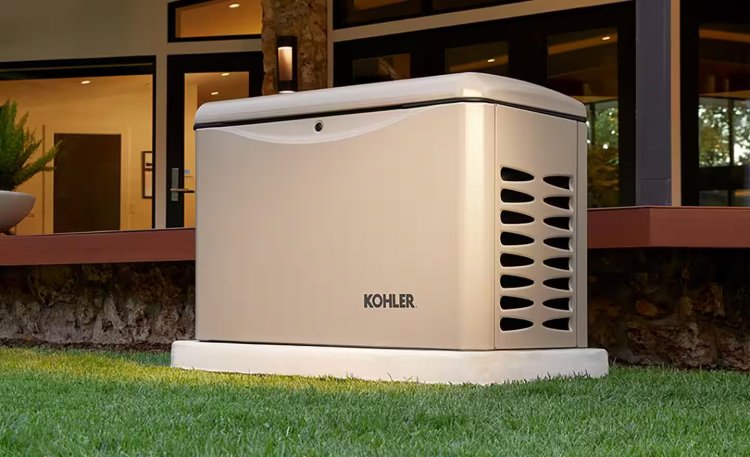Electric Generator | Types, Uses & Advantages
Electric generators are essential devices that convert mechanical energy into electrical energy. They play a crucial role in various applications, from providing backup power during outages to being the primary power source in remote locations.

Electric generators are essential devices that convert mechanical energy into electrical energy. They play a crucial role in various applications, from providing backup power during outages to being the primary power source in remote locations. Whether for residential, commercial, or industrial use, understanding the different types, uses, and advantages of electric generators can help you choose the right one for your needs.
In this comprehensive guide, we’ll explore the various types of electric generators, their uses, and the benefits they offer.
What is an Electric Generator?
An electric generator is a device that transforms mechanical energy into electrical energy. It works on the principle of electromagnetic induction, where a moving conductor (such as a coil) within a magnetic field generates electricity.
Generators are widely used to provide power in situations where the electrical grid is unavailable or unreliable. They can be powered by various energy sources, including fossil fuels, wind, hydro, and solar energy.
Types of Electric Generators
Electric generators come in different types, each suited for specific applications. Below are the most common types of generators:
1. Portable Generators
Portable generators are compact, mobile power sources commonly used for home backup, outdoor events, and construction sites.
✔ Power Source: Typically runs on gasoline or diesel.
✔ Output Range: 1 kW – 10 kW.
✔ Best For: Temporary power needs, small appliances, and emergency backup power.
2. Standby Generators
Standby generators are permanently installed backup power systems that automatically activate during a power outage.
✔ Power Source: Runs on natural gas, propane, or diesel.
✔ Output Range: 5 kW – 50 kW (for residential); larger models available for commercial use.
✔ Best For: Homes, businesses, hospitals, and critical infrastructure requiring uninterrupted power.
3. Inverter Generators
Inverter generators provide clean, stable power that is ideal for sensitive electronics. They are quieter and more fuel-efficient than traditional portable generators.
✔ Power Source: Gasoline or propane.
✔ Output Range: 1 kW – 7 kW.
✔ Best For: Camping, RVs, boats, and charging electronic devices.
4. Diesel Generators
Diesel generators are known for their durability and fuel efficiency, making them ideal for industrial and commercial applications.
✔ Power Source: Diesel fuel.
✔ Output Range: 10 kW – 3,000 kW.
✔ Best For: Industrial sites, commercial buildings, hospitals, and long-term power backup.
5. Solar Generators
Solar generators use solar panels to capture and store energy in batteries, providing an eco-friendly power solution.
✔ Power Source: Solar energy.
✔ Output Range: 500 W – 3 kW.
✔ Best For: Off-grid homes, camping, and environmentally conscious users.
6. Hydroelectric Generators
Hydroelectric generators convert water flow into electricity. These are used in large-scale hydroelectric dams or smaller micro-hydro systems.
✔ Power Source: Flowing water.
✔ Output Range: Varies widely, from small residential units to large power plants.
✔ Best For: Rural and remote areas with access to running water.
7. Wind Generators
Wind generators use wind turbines to convert wind energy into electricity.
✔ Power Source: Wind energy.
✔ Output Range: Varies depending on turbine size.
✔ Best For: Homes and businesses in windy regions.
Common Uses of Electric Generators
Electric generators serve a wide range of purposes across various sectors. Here are some of their most common applications:
1. Emergency Backup Power
One of the most significant uses of generators is providing backup power during outages. Homes, hospitals, data centers, and businesses rely on standby generators to maintain operations during blackouts.
2. Construction Sites
Portable and diesel generators are widely used on construction sites where electrical infrastructure is not yet available. They power tools, lighting, and heavy machinery.
3. Outdoor Events and Recreational Use
Generators provide electricity for camping, tailgating, concerts, festivals, and sporting events, ensuring that sound systems, lighting, and food vendors can operate efficiently.
4. Agriculture and Farming
Farmers use generators to power irrigation systems, livestock equipment, and processing plants, especially in rural areas where grid access is limited.
5. Remote Locations and Off-Grid Living
Generators are essential for cabins, RVs, remote research stations, and off-grid homes where traditional power sources are unavailable.
6. Industrial and Commercial Applications
Large-scale generators power factories, warehouses, hospitals, and telecommunications infrastructure, ensuring continuous operation during outages or in areas with unreliable grid power.
7. Military and Disaster Relief
The military and relief organizations deploy generators in disaster-stricken areas to provide emergency power for medical facilities, shelters, and communication centers.
Advantages of Electric Generators
Generators offer numerous benefits, making them an essential investment for many homeowners, businesses, and industries.
1. Reliable Power Supply
Generators provide a reliable backup power source during unexpected outages, ensuring essential systems remain operational.
2. Energy Independence
For off-grid locations, solar, wind, and diesel generators enable users to produce their own electricity, reducing reliance on utility companies.
3. Portability and Flexibility
Portable generators allow users to bring power wherever it’s needed, making them ideal for camping, job sites, and outdoor events.
4. Protection Against Power Surges
Generators help prevent damage caused by sudden power losses and fluctuations, protecting appliances, medical equipment, and data systems.
5. Cost Savings on Energy Bills
Solar and wind generators provide renewable energy solutions, reducing electricity bills over time and offering long-term savings.
How to Choose the Right Generator for Your Needs
Selecting the right generator depends on several factors:
✔ Power Requirements: Determine how much wattage you need to power essential appliances or systems.
✔ Fuel Type: Choose a fuel source that is convenient and cost-effective for your location.
✔ Portability vs. Permanence: Decide whether you need a portable unit or a standby generator.
✔ Noise Level: Inverter generators and solar generators are quieter than traditional gas or diesel models.
✔ Budget & Incentives: Look for available rebates, especially for solar and wind generators, to reduce costs.
Conclusion
Electric generators are invaluable tools that provide backup power, enhance energy security, and offer flexibility for various applications. Whether you're looking for a portable generator for outdoor activities, a standby generator for home emergencies, or a renewable energy solution like a solar or wind generator, there’s an option to meet your needs.
By understanding the types, uses, and advantages of electric generators, you can make an informed decision and ensure that you always have reliable power when you need it most.
What's Your Reaction?



















